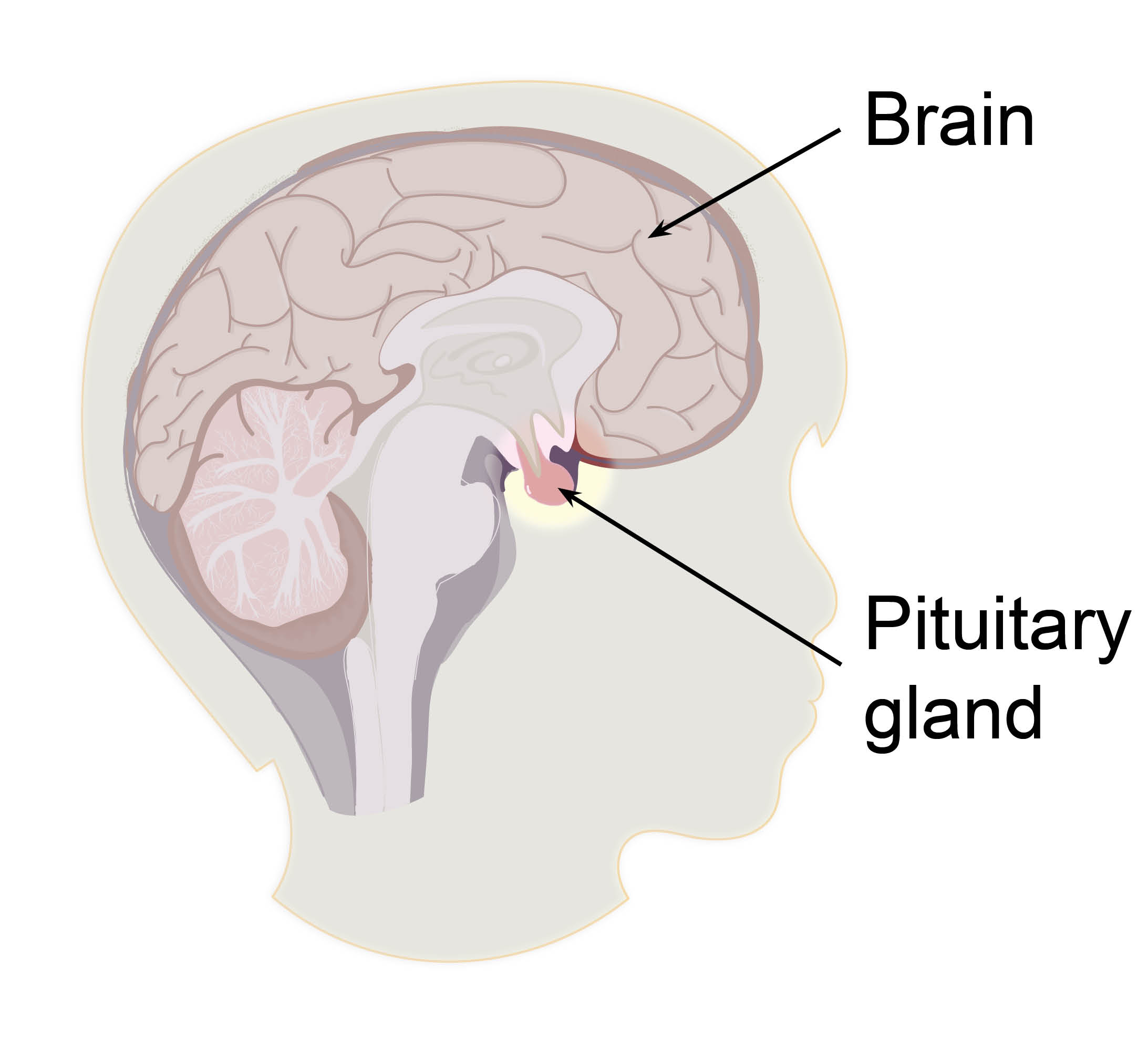LHRH Stimulation Test
Information for parents and carers from Child Health
You have been given this leaflet as concerns have been raised about your child’s puberty. This leaflet explains the following.
What a LHRH test is.
Why your child has been referred for the test.
What will happen if you choose not to have the test.
What happens before and during the test.
What the possible side effects are.
When you should receive the results.
We hope this leaflet answers some of the questions you may have. If you have any further questions or concerns, please contact Dolphin Ward on 01227 864052.
What is a Lutenising Hormone-Releasing Hormone (LHRH) Test?
A LHRH test investigates the puberty hormones produced by the pituitary gland.

The pituitary gland is a small pea sized gland sitting at the base of the brain. The pituitary gland produces several hormones important for growth, puberty, and well-being.
LHRH stimulates the production of hormones that are needed for puberty. Without normal levels of puberty hormones (LH and FSH) children do not progress through puberty.
Why has my child been referred for this test?
Children are referred for this test if they have:
not started to develop pubertal changes by the expected age; or
have early pubertal development.
Pubertal changes in girls are breast and pubic hair development. Pubertal changes in boys are testicular enlargement and pubic hair development.
What happens if we decide not to have the test?
Without the test we can only monitor your child’s pubertal development and growth in clinic. This is not such a detailed assessment, especially if we are thinking about treatment.
What happens before my child’s test?
Your child will be given an appointment to come to Dolphin Ward for their test.
They can eat and drink as normal before their test.
It is important to talk to your child about their test. Explain everything as simply as possible.
What happens on the day of their test?
Please report to the reception desk in the Children’s Assessment Centre at the Kent and Canterbury Hospital.
A nurse will greet you and your child, and take you both through to Dolphin Ward for your child’s test. Please use this time to ask any last minute questions. Remember that you can withdraw your consent for treatment at any time.
You can stay with your child while they have their test.
A nurse will apply anaesthetic cream to numb the area, before inserting a cannula into a vein. A tiny plastic tube remains in the vein. The cannula acts as a “tap”, so blood can be taken repeatedly without having to keep inserting needles to collect it.
After baseline blood tests, an injection of synthetic LHRH is given through the cannula. Following this, a nurse will take blood samples at timed intervals to measure the hormone response.
The test takes around 2 hours to complete.
Your child is advised to sit on their bed during the test. They are still able to do activities such as:
crafts
playing
using electronic devices (such as tablets and smart phones), or
watching TV.
Bringing things with you to help entertain your child would be helpful.
Once the test is complete, you can go home.
Are there any side effects to having an LHRH test?
No, there are no side effects to having this test.
When will the results be available?
Results will be ready 4 weeks after your child's test. They are usually given at your child’s next outpatient appointment, or by letter or phone call.
Contact details
If you need to cancel or change your appointment, or you have any questions or concerns about the test, please contact Dolphin ward on 01227 864052.
What do you think of this leaflet?
We welcome feedback, whether positive or negative, as it helps us to improve our care and services.
If you would like to give us feedback about this leaflet, please fill in our short online survey. Either scan the QR code below, or use the web link. We do not record your personal information, unless you provide contact details and would like to talk to us some more.
If you would rather talk to someone instead of filling in a survey, please call the Patient Voice Team.
Patient Voice Team
Telephone: 01227 868605
Email